Producing original content that your contacts are compelled to share is a challenge for many real estate agents. Every challenge, however, is an opportunity to learn, grow and triumph in new ways!
Staying competitive in your farm means staying top-of-mind with prospects. For that reason, content marketing is a great way for agents to build brand recognition. It has quickly replaced other marketing strategies as a dominant tactic in recent years.
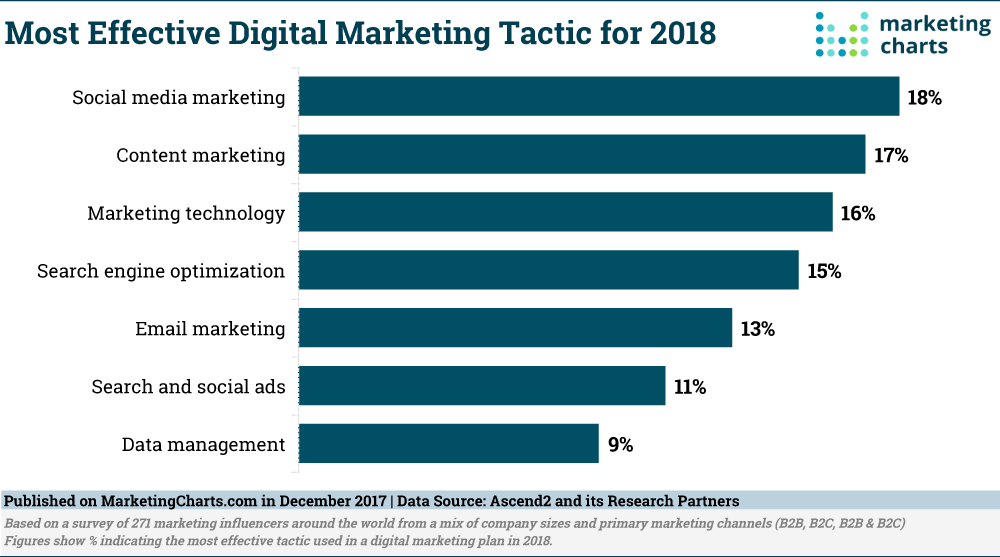
Why Create Shareable Content?
Sharing original content that is interesting, timely, and relevant to your prospects will keep your valuable subscribers engaged and growing. More importantly, content you share with your database can lead to referral business.
Whether it’s a blog article, monthly newsletter, or social media post, quality content is a long-term investment. The benefits to your business, however, compound over time:
-
Improved SERP Visibility
Building links will increase your authority with search engines, giving you higher visibility in search results. With more links, your ranking climbs. If you can dominate search results for a topic of interest to your prospects, you’ll attract more traffic.
-
Qualified Organic Traffic
Unlike traffic from paid ads, traffic generated from shared content or links has a higher conversion. People motivate to share your content do so because they feel it is timely and relevant. Online visitors who discover your content through a referral are more likely to be in need of your services.
-
Lead Cultivation
When you share content with your database regularly, you stay top-of-mind with prospects who don’t see you every day. with each communication, you build rapport that can lead to a referral or listing appointment.
-
Brand Recognition
Shareable content can not only attract more qualified traffic, it can also serve as a branding tool. Once people share your content, they are far more likely to remember you. If you focus on dominating the local market, you can quickly establish your brand as THE neighborhood specialist for your farm.
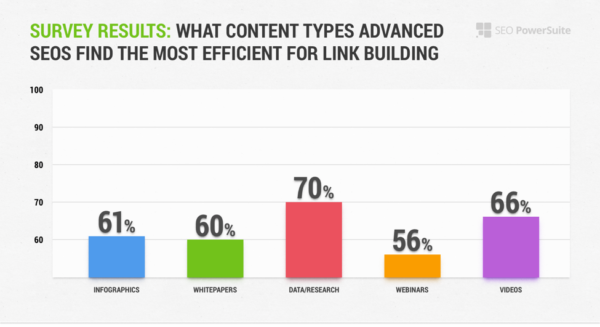
What Type of Content Should I Share?
The content you share should be defined by the needs of your audience. Diversify the content you offer to appeal to different segments of your database.
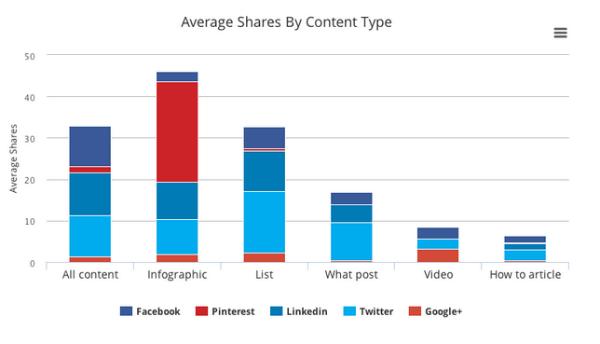
Some of your contacts will want content they can consume quickly, while others will want more comprehensive information.
Choose the content type that your prospects are most likely to share. To ensure your success, evaluate your resources to determine what type of content you can produce with competence.
What Do Buyers And Sellers Like To Share Most? (Source)
- Social media posts
- Videos
- Illustrations/Photos
- Infographics
- Interactive content (quizzes, etc.)
Note: The above list is not in order of preference.
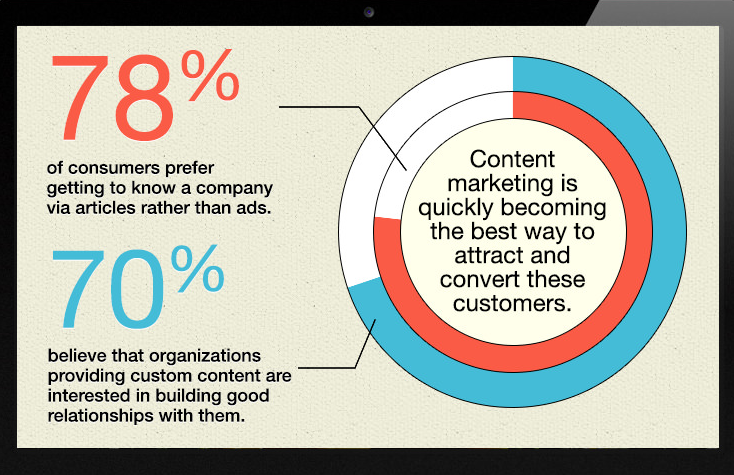
5 Types of Content For Agents To Get More Shares
Create content for your newsletter and social media that local prospects will want to share. Leverage your social media pages to distribute your content across several channels to increase your exposure.
Consider these 5 leading types of content and how you can implement them in your content marketing strategy:
#1) Lead magnets for buyers and sellers.
A lead magnet is designed to capture customer contact information, which you can then add to your database. Visitors who click on your link are directed to a landing page where they are required to fill in the necessary contact fields.
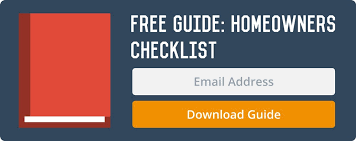
Using an attractive landing page, you can offer subscribers free content they can download for free in exchange for their contact information. You can even publish your very own digital book or e-book at a very reasonable cost.
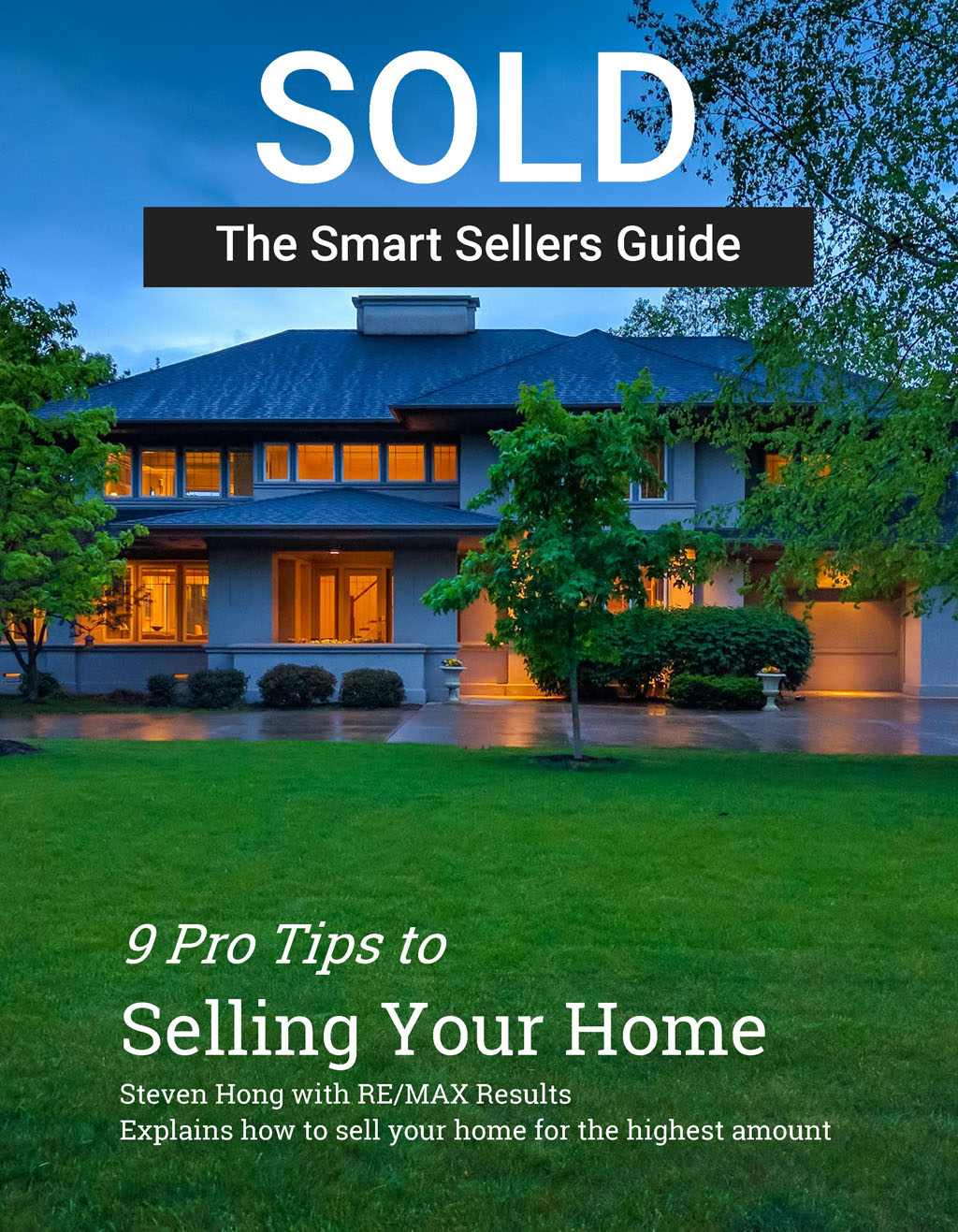
Example of A Real Estate E-book
Upon completing the brief form on your landing page, you can send prospects a PDF file or grant them access to an online version.
There are several web-based options and services that provide lead magnet templates and design tools suitable for beginners and professionals.
E-Book Topic Ideas for Real Estate:
- Homebuyer’s Checklist
- Closing Costs You Should Be Aware
- How To Choose The Right Agent
- Renting Vs. Buying: Which is Best For You?
- FSBO Guide
- Real Estate Investment Guide
#2) Infographics
Research statistics and data offer prospective buyers and sellers tangible insight into the housing market. The data you provide can be distilled easily shared in the form of an infographic.
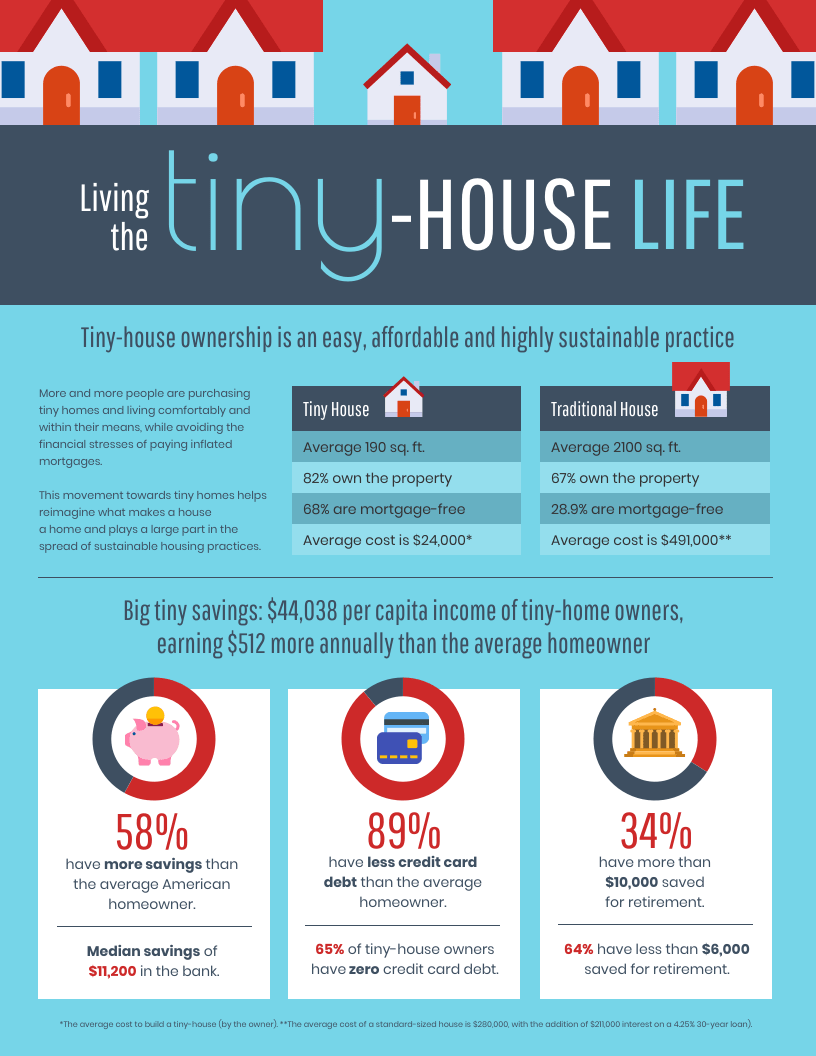
Example of a real estate infographic
An infographic provides users with a visible way to consume data. Images and color are used to highlight key facts and figures in the infographic. The infographic can easily be shared because it is a much smaller document than a full report.
You can drive interest in your reports by publishing your own infographics on social media. Include a link to the full report on your infographic to encourage further online sharing.
Creating your own infographics can be time-consuming, particularly if you don’t have natural design skills or experience. There are, however, several online options for customizing your own infographics.
If time is an issue, you can contract a graphic designer.
#3) Real Estate Quiz or Survey
One of the simplest types of content you can share with your database is a quiz or survey. The survey can be fun or a form of market research.
The feedback and insight you gain from the quiz or survey can be useful in helping you create more relevant content. If the quiz or survey is relatively brief, you’ll get more shares.
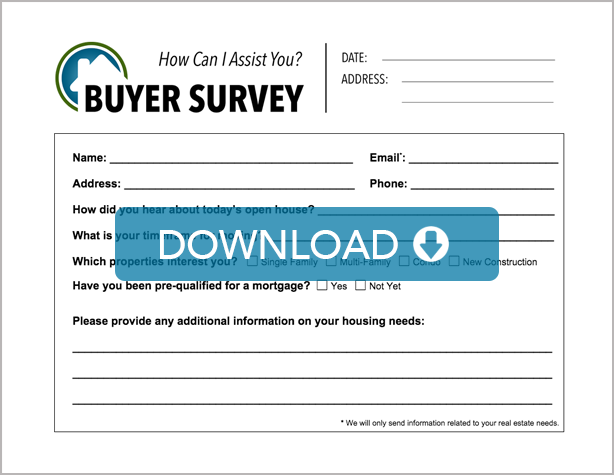
Create your own customized surveys to learn about your client’s needs and desires. Review Facebook and other social media for comments and feedback that might suggest relevant survey topics.
Examples of real estate survey topics include:
- What would you do with $1 million dollars?
- Which neighborhood would you move to if you could?
- Are you ready for homeownership?
- What kind of homeowner are you?
- What kind of property is best for you?
SurveyMonkey provides a few different types of surveys you might consider using:
- Event planning survey
- Customer loyalty survey
- Audience insight survey
- Employee survey
Google Forms is another web-based service that offers free templates and design tools for customizing your very own survey!
#4) A Real Estate Webinar
Homeowners and first-time buyers typically spend months researching the market. On average, they spend as much as 10 – 12 weeks researching before they contact an agent. During their research stage, you can be of service by providing them with comprehensive information in the form of a webinar.
A webinar is a great alternative for prospects who simply don’t have time to attend a seminar or conference in person. Webinars, in fact, are the second most popular type of content for generating leads.
How long should my webinar be?
Webinar audiences prefer a webinar that is 30 -40mn. in length.
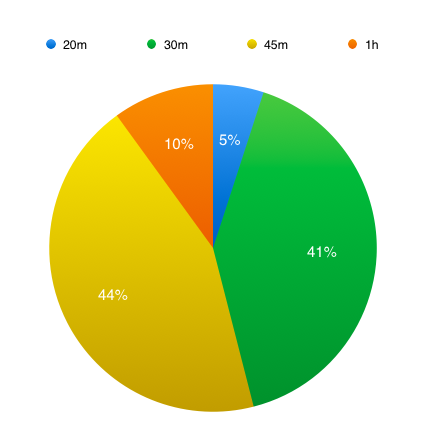
You could, for instance, write an ebook guide for first-time buyers or tips for condo buyers. You could then convert the book into a script and produce a 30mn. webinar. This way, prospects can either view the webinar or download the ebook.
You can find a host of affordable webinar software options online.
Webinar Tips (Bigmarker)
- Tuesday mornings are the best day statistically to air your webinar
- Include a q&A at the end of your webinar to get feedback, comments, and engagement
- Plan to promote your webinar well in advance
- Expect registration to increase on the day of the webinar
- Aim for an average 150 attendees, which is the standard for webinar attendance.
- Approximately 30% of those who register will attend
- Feature interviews with local business owners
- Post the webinar to YouTube after the live event for increased views.
- Your webinar budget should be between $100 – $3000 for the best results.
#5) Real Estate Case Studies
Agents who want to brand themselves as industry experts with other real estate professionals should consider writing more case studies.
While buyers and sellers aren’t likely to read your case study, brokers, appraisers, mortgage lenders, and other agents can find value in your case study.
As it suggests, a case study examines a specific problem or scenario and how it was resolved using your services or expertise.
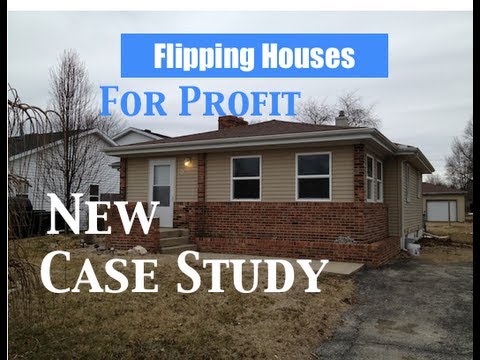
Your case provides an illustration of your unique value proposition. If you’re seeking to brand yourself as the local neighborhood expert, a case study establishes proof with potential buyers and sellers.
For example, you could write a case study outlining how you helped a retiree find a historic home with unique features in your neighborhood. In the case study, you would describe your client, the challenges you faced, and your specific strategy for solving their problem.
Case Study Tips For Real Estate:
- Choose a real-life scenario that will resonate with your target audience.
- Personalize the story with details about your client.
- Focus your case study on the results you achieved.
- Don’t advertise your expertise, demonstrate them.
- Be specific. Include facts, percentages or any other data that supports your case.
- Keep your story concise.
- Provide a timeline of events.
- End with a summary of your key takeaways.
A strong case study takes time to produce well. Investing time and effort, only to execute it poorly, is a waste of valuable time. The services of a professional copywriter may be an option if you have the budget.
There are several ways to promote and share your case study besides your newsletter. One easy way is to share your case study on LinkedIn, where other real estate professionals are likely to discover and share it.
Local real estate bloggers may find your case study useful for their audience. You could also issue a press release for your case study to local media and industry publications.
Summary
Content marketing can be a highly effective lead generation tactic for real estate agents. If you are dedicated to producing quality, original content, strive for diversity as well in your offering.
By consistently providing relevant content for the appropriate market segments in your database, you can increase sharing and attract referrals.
Regardless of the type of content you offer to your database, be thoughtful and strategic. Frequent offers that don’t actually add value will fuel attrition and undermine your efforts to grow.
Lastly, be open to experimenting with different types, and please let us know what works best for you in the comments below!






